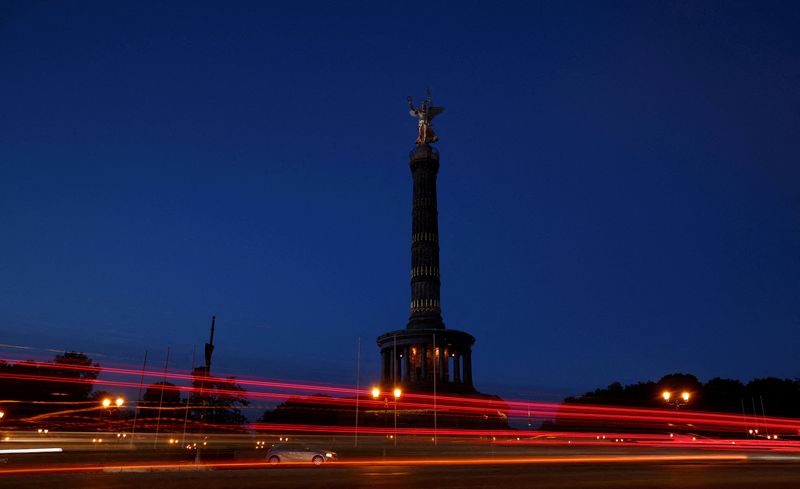By Maria Martinez and Paul Carrel
BERLIN (Reuters) -German economic output stagnated in the final quarter of 2022 and grew 1.9% over the full year, adding to signs that Europe's largest economy may dodge a recession, at least over the winter.
The full-year rise in gross domestic product reported by German statistics office Destatis on Friday just beat the mid-range forecast of 1.8% in a Reuters poll of economists. GDP in 2022 was 0.7% higher than in 2019, the year before the start of the COVID-19 pandemic.
"Our economy is adaptable and robust," finance minister Christian Lindner said.
Friday's data adds to evidence that an expected recession in the wider 20-nation euro zone over the winter months may be shorter and shallower than forecast.
Destatis president Ruth Brand said the German economy had performed well in 2022 despite the energy crisis triggered by Russia's invasion of Ukraine.
"There were also serious material shortages and delivery bottlenecks, massively rising prices in food, skilled labour shortages and the continuing - though fading - COVID-19 pandemic," she said.
The main drivers of economic growth were household consumption, with a 4.6% year-on-year increase, and investment in machinery and equipment, posting a 2.5% on year rise.
"The economic slowdown over the winter half-year will, according to the data we have now, be milder and shorter than expected," Economy Minister Robert Habeck said in the ministry's monthly report.
Thomas Gitzel, chief economist at VP Bank, said the economy had outperformed low expectations, adding: "It is possible that the recession will be postponed. On the other hand, we think it is unlikely that the recession will not materialise at all."
A recession is commonly defined as two successive quarters of contraction, and the statistics office's fourth quarter figure of zero growth was an initial readout that might yet be revised.
But there have been growing signs that the economy, which grew in the third quarter, might stave off the worst of a downturn driven by plunging gas supplies from Russia and soaring prices for energy on world markets.
German government economic adviser Monika Schnitzer on Thursday told Reuters that domestic inflation had probably peaked as global energy prices have fallen, adding that she expected natural gas prices to continue to fall this year.

Inflation eased for a second month in a row in December due to falling energy prices and a one-off government off payment of household energy bills, with EU-harmonized consumer prices rising 9.6% on the year.
Germany's state deficit was 2.6% of GDP in 2022, the statistics office added.
